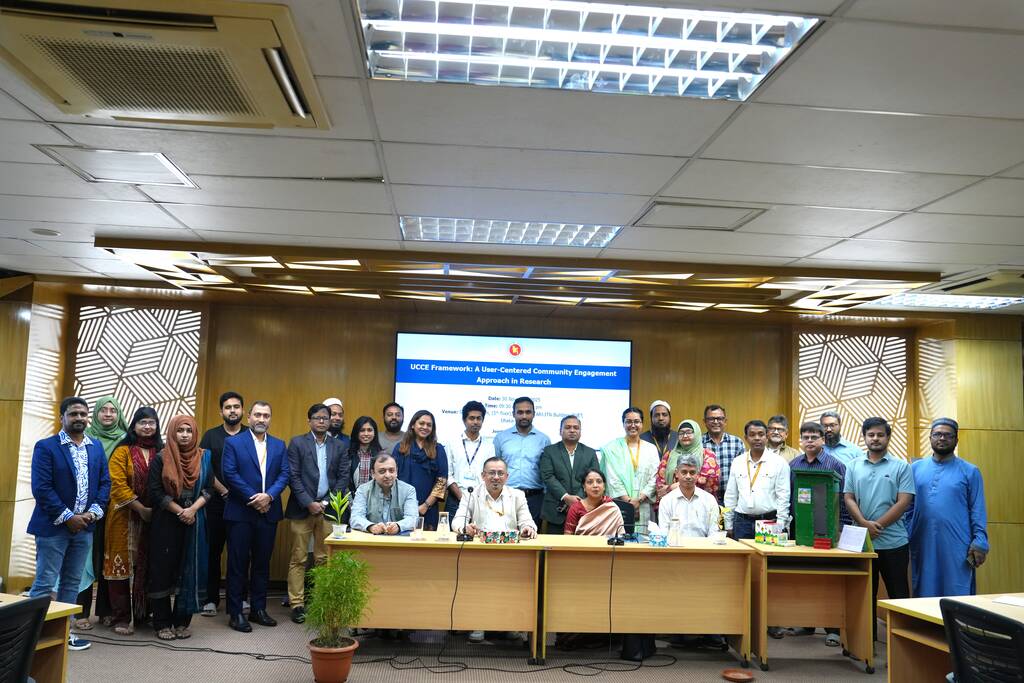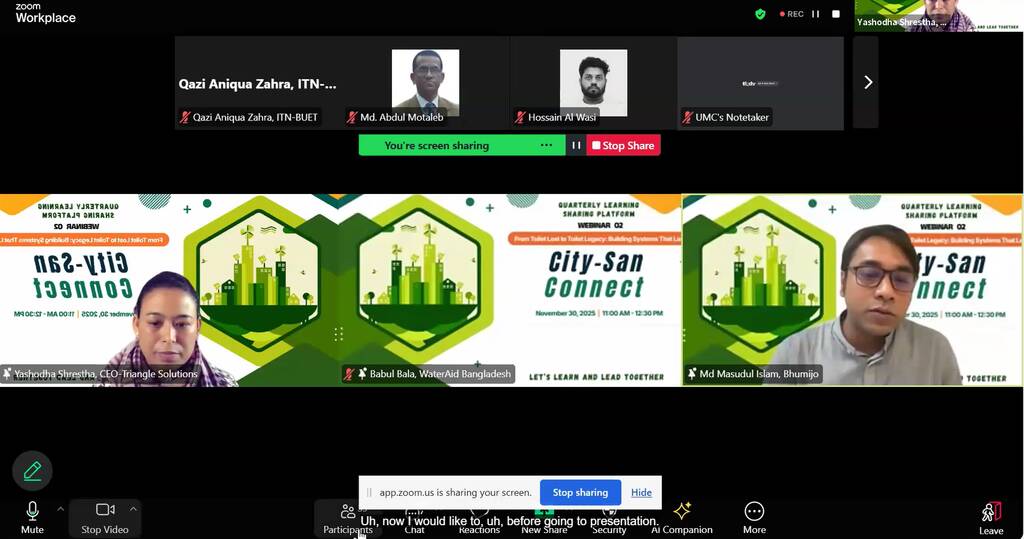Given the growth of the urban population, delivering proper sanitation services for all is a challenge for sanitation sector stakeholders in Bangladesh. The Administrative Staff College of India (ASCI), with ITN-BUET, organised a ‘Sanitation Workshop and Leadership Development Tour’ to cultivate leadership among the Engineers and officials of the Department of Public Health Engineering (DPHE) and several Paurashavas.
The tour aimed to provide the leaders with a thorough grasp of City-Wide Inclusive Sanitation (CWIS) and to advocate for inclusive sanitation practices. 16 participants from Bangladesh availed immersive learning experiences through field visits, demonstrations, and engagements with peers and stakeholders in Telangana and Odisha states, India, from 2nd to 6th March 2024.
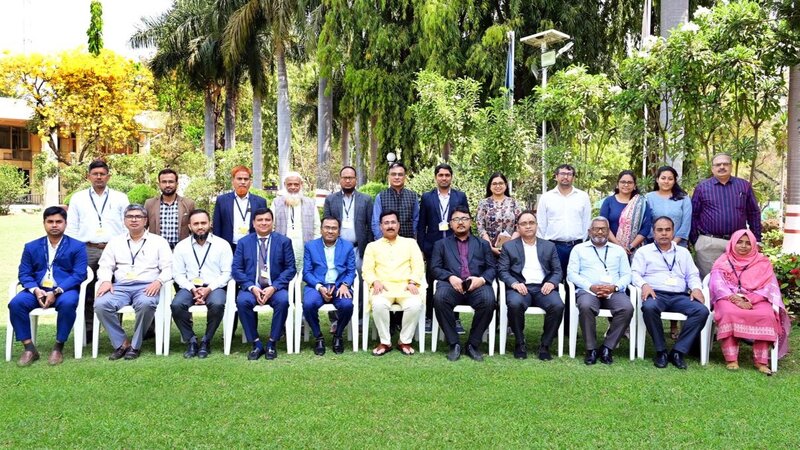
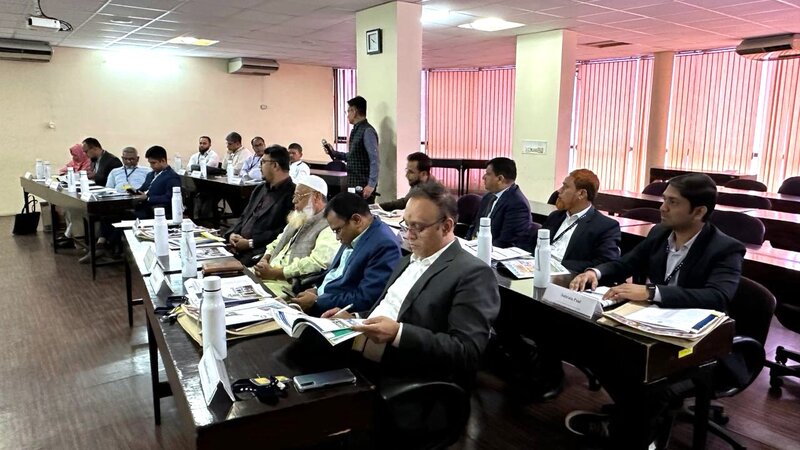
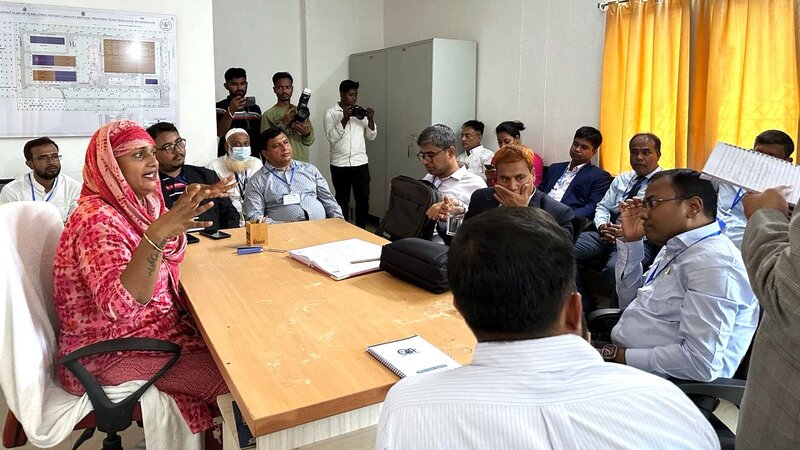
Participants explored sanitation intervention services in Telangana and Odisha. They toured public toilets, FSTPs, nature-based FSTPs, decentralised wastewater treatment systems, the GARIMA Scheme, FSSM, and co-treatment sites in Hyderabad, Warangal, Bhubaneswar, and Puri to gain hands-on experience during their field visits.
Participants enriched their understanding of sustainable sanitation practices through discussions with key stakeholders, such as the Commissioner & Directorate of Municipal Administration (CDMA) of Telangana, officials from the Greater Hyderabad Municipal Corporation (GHMC), officials from the Warangal Municipal Corporation, and officials from the Odisha State government-led interventions.
The Odisha visit highlighted the initiatives on integrating gender-responsive approaches into sanitation programs. This experience motivated participants to adopt similar strategies in Bangladesh, ensuring inclusive and equitable sanitation practices. Additionally, the tour of Telangana provided insights into the state’s successful Public-Private Partnership (PPP) model and ICT-based monitoring system, offering valuable learning opportunities for participants.
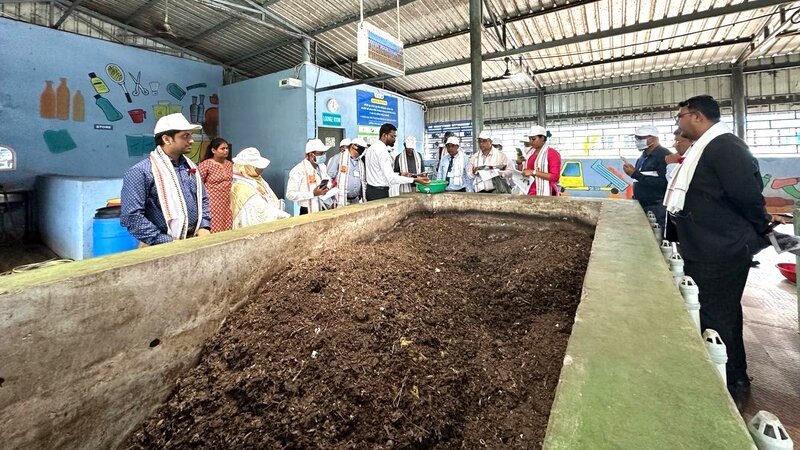
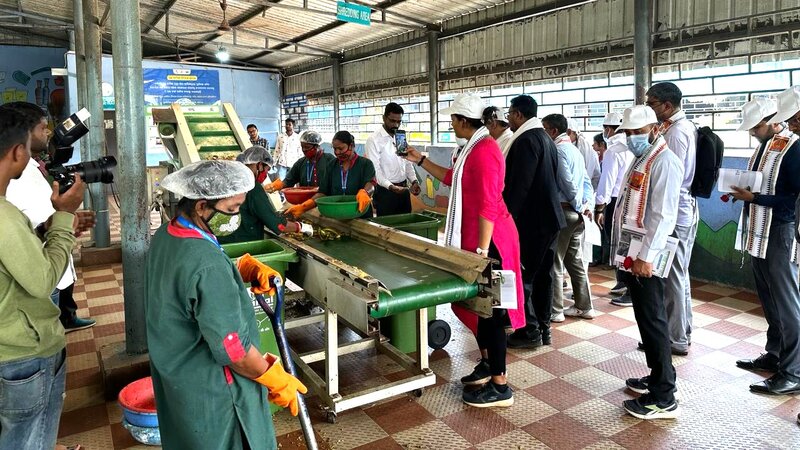
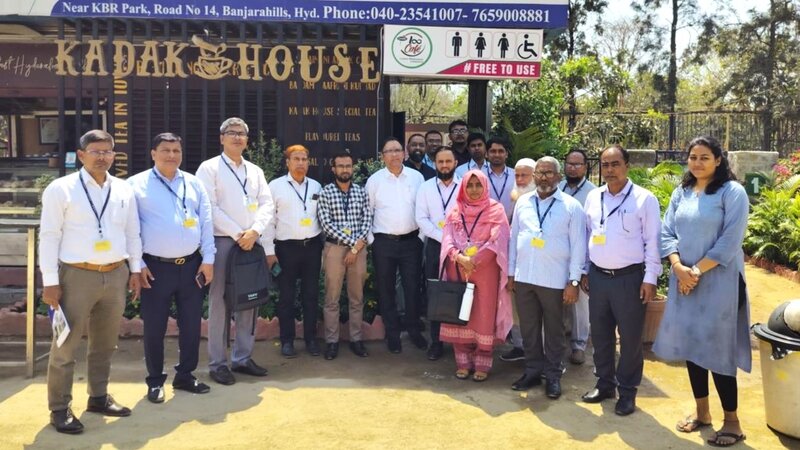
The sanitation workshop and tour empowered participants with the knowledge and inspiration to bring positive changes in their communities. Ms. Bilkis Aktar, Executive Engineer of DPHE in Lakshmipur, expressed, “The focus on gender-responsive approaches is motivating. I now feel empowered to champion women’s inclusion in sanitation projects in Bangladesh.” Mr. Md Abdul Malek, Executive Engineer of Natore municipality, added, “The field visits unveiled innovative solutions that we can readily adopt to support our communities in Bangladesh.”
Training Specialist of ITN-BUET, Mr. Subrata Paul, coordinated the tour from Bangladesh. He shared, “This experience will prove invaluable in synthesising case studies, best practices, and lessons learned for developing professional curricula and training materials.”
Participants will develop action plans tailored to their regions, drawing from insights gained during the sanitation tour. Additionally, they will partner with local authorities, community groups, and stakeholders to execute sanitation projects that align with the CWIS approach.



